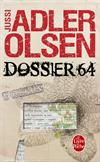
Invisible Cities
3 journalers for this copy...
Pre-numbered label used for registration.
Invisible Cities is on its way to Michigan.
Received in the mail from Valerie. I love this book. I live it. I want to memorize it before I die (hey, it's short, and I have decades!). Unfortunately, I lost my copy when I lost a jacket a year or two ago. Invisible Cities is not out of print: of course it would be a trivial thing to go to Borders for another copy. I want nothing about Invisible Cities to be trivial, however, and the only copies I have seen at bookstores have been inferiorly printed.
When I discovered BookCrossing, therefore, I came up with the idea of reading circulating copies of my book. I am expecting to keep this for three months or so, reading it steadily in accordance with my lifetime plan (I figure that for the next six or eight years just reading it steadily will start to get it into my head enough, and I can get more systematic later), and then send it on. I will almost certainly give this book to a friend. It is too important to me to trust to fate.
I first encountered Calvino in an expository writing class on the theme of originality. We read it in conjunction with Marco Polo's actual (supposed) journal, to which it bears very little resemblance. An interesting feature of Invisible Cities is that it does often give very precise directions between cities. Perhaps one day I will see to what extent I can chart the geography of the worlds. I do not really believe I could get far, however. It is obvious the cities are in different worlds.
I frequently used to read this aloud at the Harvard-Radcliffe Science Fiction Association (HRSFA) Milk & Cookies Special Interest Group (SIG). One famed HRSFen used to invite people to M&C with, "Come relive the childhood you wish you'd had!" (Some of us thought that a rather left-handed and depressing slogan.) People gather in a common room at a Harvard dorm, with a raging fire, several types of milk and cookies (I often used to bake chocolate chip oatmeal walnut in a tiny and grody Harvard dorm student kitchen), sometimes marshmallows, pajamas optional but encouraged. They read stories to one another. Frequently these are science fiction stories (sometimes short stories, other times excerpts from novels), but also children's books, picture books, sometimes sketches from plays or dialogues performed by several readers, and literature of all levels. When I read Calvino to the Milk & Cookies crowd, I wandered through the room, looking people in the eye and sometimes touching their shoulders. I would read three cities, with one interlude on either side. I would choose carefully in advance the order. As I learned the book better, themes and imagery grew connections between cities that I had not noticed at first. Once we were in a room with a particularly busy, thick, luxurious carpet. I read the city which has a map of the heavens in a woven rug that night.
I believe Invisible Cities to be much like The Twilight Zone: short, subtle, devastatingly elegant parables about small but crucial drives inside the human mind. I read this book in a second class, a "Literary Journeys" seminar taught by Bill Graham. I wrote an essay about the interplay of memory, imagination, and observation in Calvino's book. I just read it through again, and it is quite good: not the most coherent thing I've ever written, but that is no more than appropriate for this book. Perhaps I will be proud enough to add some bits from my essay to the next journal entry.
To the next readers, if this book is new to you, I recommend taking an evening, curling up, and allowing Calvino absolutely to overwhelm you. A caveat: that method means you'll remember very little about individual cities. The first time I read it was as homework--I did the overwhelming method, but made tiny little notes on each city to keep them straight in my mind.
When I discovered BookCrossing, therefore, I came up with the idea of reading circulating copies of my book. I am expecting to keep this for three months or so, reading it steadily in accordance with my lifetime plan (I figure that for the next six or eight years just reading it steadily will start to get it into my head enough, and I can get more systematic later), and then send it on. I will almost certainly give this book to a friend. It is too important to me to trust to fate.
I first encountered Calvino in an expository writing class on the theme of originality. We read it in conjunction with Marco Polo's actual (supposed) journal, to which it bears very little resemblance. An interesting feature of Invisible Cities is that it does often give very precise directions between cities. Perhaps one day I will see to what extent I can chart the geography of the worlds. I do not really believe I could get far, however. It is obvious the cities are in different worlds.
I frequently used to read this aloud at the Harvard-Radcliffe Science Fiction Association (HRSFA) Milk & Cookies Special Interest Group (SIG). One famed HRSFen used to invite people to M&C with, "Come relive the childhood you wish you'd had!" (Some of us thought that a rather left-handed and depressing slogan.) People gather in a common room at a Harvard dorm, with a raging fire, several types of milk and cookies (I often used to bake chocolate chip oatmeal walnut in a tiny and grody Harvard dorm student kitchen), sometimes marshmallows, pajamas optional but encouraged. They read stories to one another. Frequently these are science fiction stories (sometimes short stories, other times excerpts from novels), but also children's books, picture books, sometimes sketches from plays or dialogues performed by several readers, and literature of all levels. When I read Calvino to the Milk & Cookies crowd, I wandered through the room, looking people in the eye and sometimes touching their shoulders. I would read three cities, with one interlude on either side. I would choose carefully in advance the order. As I learned the book better, themes and imagery grew connections between cities that I had not noticed at first. Once we were in a room with a particularly busy, thick, luxurious carpet. I read the city which has a map of the heavens in a woven rug that night.
I believe Invisible Cities to be much like The Twilight Zone: short, subtle, devastatingly elegant parables about small but crucial drives inside the human mind. I read this book in a second class, a "Literary Journeys" seminar taught by Bill Graham. I wrote an essay about the interplay of memory, imagination, and observation in Calvino's book. I just read it through again, and it is quite good: not the most coherent thing I've ever written, but that is no more than appropriate for this book. Perhaps I will be proud enough to add some bits from my essay to the next journal entry.
To the next readers, if this book is new to you, I recommend taking an evening, curling up, and allowing Calvino absolutely to overwhelm you. A caveat: that method means you'll remember very little about individual cities. The first time I read it was as homework--I did the overwhelming method, but made tiny little notes on each city to keep them straight in my mind.
Cities and Memory: Diomira, Isidora, Zaira, Zora, Maurilia
"The past isn't dead. It isn't even past."
Calvino plays with several conceptions of the past, dead and still living, transformative, weighty, and bouyant, in this first set. "He feels envy toward those who now believe they have once before lived an evening identical to this and who think they were happy, that time" (7). What does it mean to have lived before? Have you considered that it means you have grown up before, fallen in love before, had children before, worked in a career or in the home before, and encountered another whole lifetime of enchanted evenings? Does it mean you have had the gift of life before, that you hold within you the results of that gift? "... [They] think they were happy, that time." Is life the opportunity to be happy and/or sad, the opportunity to feel and think, and to have those feelings and thoughts imprinted upon your body, mind, and soul?
"The dreamed-of city contained him as a young man" (8). All that past, all those gifts and costs and the results of them carved into you, do they weigh you down or, rather, bouy you up? Does it take energy to hold within you your past--as time goes on, does it take more out of you simply to exist as you are, leaving less left over for doing the things that add to you yet more? When we think of our past, do we imagine using it or merely having it? Which course shows greater self-possession?
"The city, however, does not tell its past, but contains it like the lines of a hand, written in the corner of the streets, the gratings of the windows, the banisters of the steps ..." (11). I look at the lines of my hands. Calvino says the past is written in them, some would say the future. I prefer the past. In my hands I can indeed use my past, which lends me strength and ... well, handiness. The lines of my skin show my hands have molded themselves into what they must be to confront the rest of my life. I speak sometimes of experiences that flatten me out, like watching too much TV, as opposed to crinkling or bundling me up into a creature with texture and depth and hidden places, like reading well. (Reading poorly also flattens.) Isidora suggests that age smooths out, but Zaira suggests it crinkles. Looking at an aged person, anyone can realize of course both are true.
"Between each idea and each point of the itinerary an affinity or a contrast can be established, serving as an immediate aid to memory" (15). Many years ago, I read someone's account of reading places: his habit of taking books to different locations, sitting and reading in a given environment, which forevermore was linked with the experience of that book. I liked it. I don't make it a reading practice myself, but I do find, as I walk through the town, that certain street corners call to mind conversations held there. And so I jump, as always, from the parable to the referent: what is Calvino here saying about the mind?
Memory, too, is a physical thing, and not only in that it is written somehow somewhere in actual neurons. The body carries memories of tensions. A friend who knows something of physical therapy told me of ideas that sometimes, in dealing with the physical results of trauma, one unlocks the trauma itself again, that physical therapy can verge on the mental, because one has to be willing to deal in all ways with what has happened.
"[T]he gods who live beneath names and above places have gone off without a word and outsiders have settled in their place" (31). I have spoken sometimes of different mes. I have spoken with nostalgia of the old mes, of the girl I was at 16, or 13, or 8. I have looked sometimes with mere interest, sometimes with the slightest shudder, at who I was scant months ago. Are those mes now dead? I don't believe that. I believe in the persistence of memory, as I have been writing here. I believe the past becomes present again as I act through it, and that my body carries inside it some of what it once was. I believe it is not just I who act, but also other selves I carry inside me, characters from the stories that are true to me, including my own stories. Perhaps the gods do sometimes desert a city or a person--more likely they are pushed out by new gods--but they never leave without a word. They never stop speaking to the place where they formerly were. They lend the depth, and the weight, and the flow. They also consume it.
*****
I spoke last week to a friend about this book, and I think she would understand it well. I intend to pass the book on tomorrow to her. I read this copy of Invisible Cities far less than I had planned to, but there is always more time, at least.
Enjoy.
Jinnayah
"The past isn't dead. It isn't even past."
Calvino plays with several conceptions of the past, dead and still living, transformative, weighty, and bouyant, in this first set. "He feels envy toward those who now believe they have once before lived an evening identical to this and who think they were happy, that time" (7). What does it mean to have lived before? Have you considered that it means you have grown up before, fallen in love before, had children before, worked in a career or in the home before, and encountered another whole lifetime of enchanted evenings? Does it mean you have had the gift of life before, that you hold within you the results of that gift? "... [They] think they were happy, that time." Is life the opportunity to be happy and/or sad, the opportunity to feel and think, and to have those feelings and thoughts imprinted upon your body, mind, and soul?
"The dreamed-of city contained him as a young man" (8). All that past, all those gifts and costs and the results of them carved into you, do they weigh you down or, rather, bouy you up? Does it take energy to hold within you your past--as time goes on, does it take more out of you simply to exist as you are, leaving less left over for doing the things that add to you yet more? When we think of our past, do we imagine using it or merely having it? Which course shows greater self-possession?
"The city, however, does not tell its past, but contains it like the lines of a hand, written in the corner of the streets, the gratings of the windows, the banisters of the steps ..." (11). I look at the lines of my hands. Calvino says the past is written in them, some would say the future. I prefer the past. In my hands I can indeed use my past, which lends me strength and ... well, handiness. The lines of my skin show my hands have molded themselves into what they must be to confront the rest of my life. I speak sometimes of experiences that flatten me out, like watching too much TV, as opposed to crinkling or bundling me up into a creature with texture and depth and hidden places, like reading well. (Reading poorly also flattens.) Isidora suggests that age smooths out, but Zaira suggests it crinkles. Looking at an aged person, anyone can realize of course both are true.
"Between each idea and each point of the itinerary an affinity or a contrast can be established, serving as an immediate aid to memory" (15). Many years ago, I read someone's account of reading places: his habit of taking books to different locations, sitting and reading in a given environment, which forevermore was linked with the experience of that book. I liked it. I don't make it a reading practice myself, but I do find, as I walk through the town, that certain street corners call to mind conversations held there. And so I jump, as always, from the parable to the referent: what is Calvino here saying about the mind?
Memory, too, is a physical thing, and not only in that it is written somehow somewhere in actual neurons. The body carries memories of tensions. A friend who knows something of physical therapy told me of ideas that sometimes, in dealing with the physical results of trauma, one unlocks the trauma itself again, that physical therapy can verge on the mental, because one has to be willing to deal in all ways with what has happened.
"[T]he gods who live beneath names and above places have gone off without a word and outsiders have settled in their place" (31). I have spoken sometimes of different mes. I have spoken with nostalgia of the old mes, of the girl I was at 16, or 13, or 8. I have looked sometimes with mere interest, sometimes with the slightest shudder, at who I was scant months ago. Are those mes now dead? I don't believe that. I believe in the persistence of memory, as I have been writing here. I believe the past becomes present again as I act through it, and that my body carries inside it some of what it once was. I believe it is not just I who act, but also other selves I carry inside me, characters from the stories that are true to me, including my own stories. Perhaps the gods do sometimes desert a city or a person--more likely they are pushed out by new gods--but they never leave without a word. They never stop speaking to the place where they formerly were. They lend the depth, and the weight, and the flow. They also consume it.
*****
I spoke last week to a friend about this book, and I think she would understand it well. I intend to pass the book on tomorrow to her. I read this copy of Invisible Cities far less than I had planned to, but there is always more time, at least.
Enjoy.
Jinnayah
I am enjoying reading this book, even though I must be more of an "auditory" individual, since my friend who loaned it to me is such a wonderful storyteller. thank you again so much for letting me in....this is intriguing, and I would not have found it myself. I will return it to you so that you may send it to others.
CAUGHT IN ANN ARBOR MICHIGAN USA
CAUGHT IN ANN ARBOR MICHIGAN USA
Journal Entry 6 by jinnayah at Pioneer High School in Ann Arbor, Michigan USA on Friday, December 3, 2004
Released on Friday, December 03, 2004 at about 8:00:00 AM BX time (GMT-06:00) Central Time (US & Canada) at Pioneer High School in Ann Arbor, Michigan USA.
RELEASE NOTES:
Student alert!
Released the book to Mrs. Graff, Humanities & Brit. Lit. teacher at Pioneer High School. Feel free to ask her for it.
This copy was returned to me by the acquaintance to whom I had given it. She thanked me profusely for introducing her to the book, and said in a surprised way she had found herself absolutely unable to release it. So she handed it back to me.
My mother thinks this book is a bit too old for high schoolers. I have faith in them, and in Mrs. Graff's ability to find the right reader.
RELEASE NOTES:
Student alert!
Released the book to Mrs. Graff, Humanities & Brit. Lit. teacher at Pioneer High School. Feel free to ask her for it.
This copy was returned to me by the acquaintance to whom I had given it. She thanked me profusely for introducing her to the book, and said in a surprised way she had found herself absolutely unable to release it. So she handed it back to me.
My mother thinks this book is a bit too old for high schoolers. I have faith in them, and in Mrs. Graff's ability to find the right reader.
 This Book is Currently in the Wild!
This Book is Currently in the Wild!











